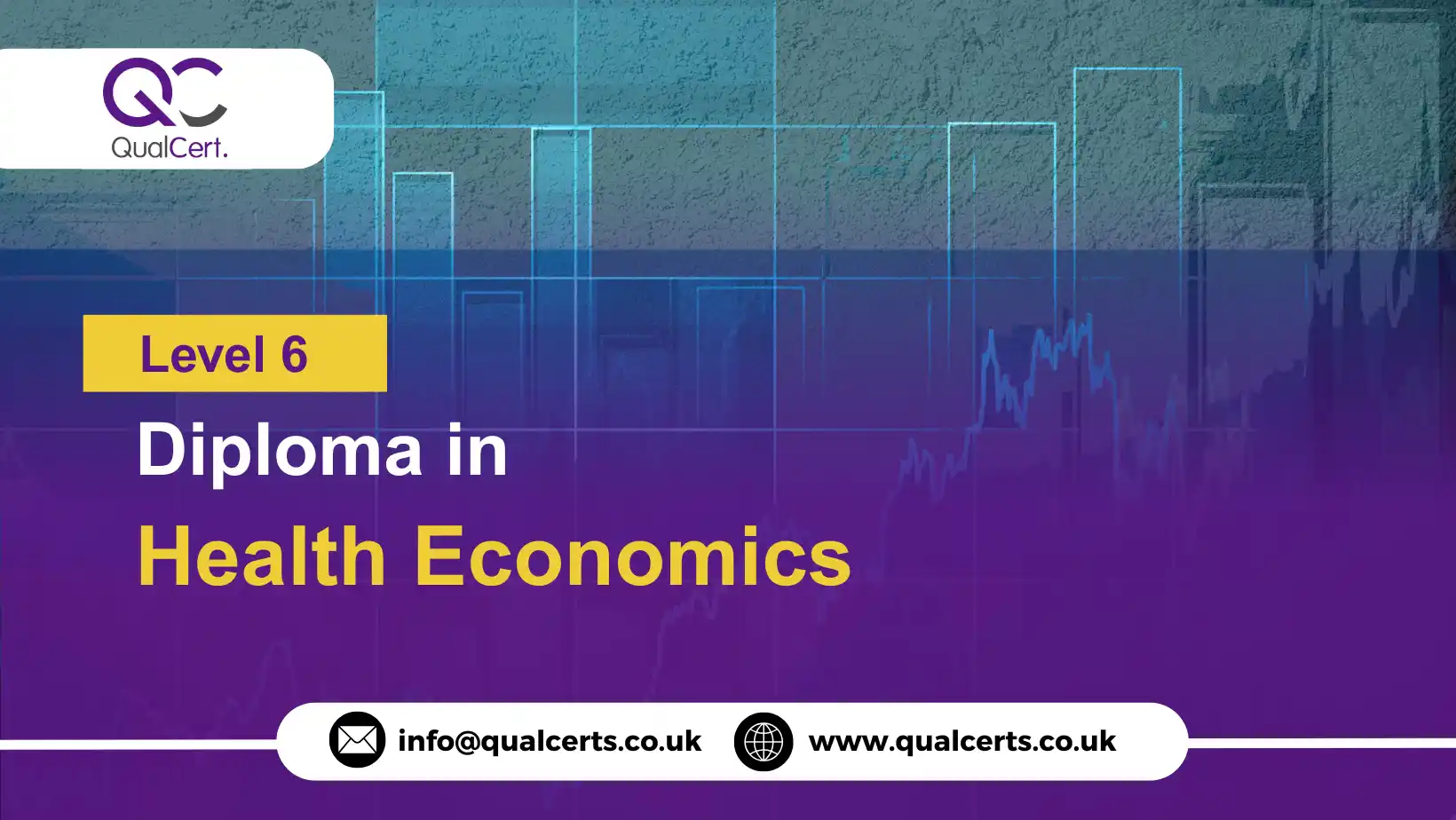The QualCert Level 6 Diploma in Health Economics offers a comprehensive pathway for professionals aiming to deepen their understanding of economic principles applied to healthcare systems. In today’s rapidly evolving healthcare landscape, making informed financial decisions is critical to ensuring both efficiency and equity in service delivery. This diploma equips learners with essential skills to analyse and influence economic policies that impact health outcomes globally.
Designed for healthcare managers, policy makers, economists, and analysts, this qualification bridges the gap between economics and healthcare practice. Participants will explore topics such as cost-effectiveness analysis, resource allocation, health financing models, and economic evaluation techniques. These skills enable professionals to assess the value and impact of healthcare interventions, guiding strategic investment decisions that maximise patient benefit while controlling costs.
The course curriculum aligns with international standards, ensuring learners acquire relevant and practical expertise. Through case studies, data interpretation, and policy analysis, participants develop a nuanced understanding of how economic theories translate into real-world healthcare challenges. This approach fosters critical thinking and evidence-based decision making essential for leadership roles within public health departments, hospitals, insurance providers, and governmental bodies.
Completing the QualCert Level 6 Diploma in Health Economics enhances career prospects by preparing professionals to contribute meaningfully to health policy development and management. Graduates are better positioned to support sustainable healthcare financing and improve system performance through informed economic analysis. Whether you are seeking to advance your current role or transition into health economics, this diploma provides a valuable credential recognised across the healthcare sector.
Course Contents of QualCert Level 6 Diploma in Health Economics :
The QualCert Level 6 Diploma in Health Economics consists of a structured set of study units designed to provide learners with in-depth and comprehensive knowledge. The qualification includes a total of 1200 Total Qualification Time (TQT), 600 Guided Learning Hours (GLH), and awards 120 credits.
| Unit Ref# | Unit Title | Credits | GLH | TQT |
| QC28069- 1 | Principles of Health Economics | 20 | 100 | 200 |
| QC28069-2 | Healthcare Financing and Insurance Systems | 20 | 100 | 200 |
| QC28069-3 | Economic Evaluation in Healthcare | 20 | 100 | 200 |
| QC28069-4 | Resource Allocation and Health Policy Development | 20 | 100 | 200 |
| QC28069-5 | Pharmaceutical Economics and Market Access | 20 | 100 | 200 |
| QC28069-6 | Data Analysis and Modelling in Health Economics | 20 | 100 | 200 |
Entry requirements for the QualCert Level 6 Diploma in Health Economics :
Minimum Age
- Applicants must be at least 19 years old at the time of enrolment.
Educational Background
- A relevant Level 5 qualification or equivalent in health sciences, economics, public health, or related disciplines is typically required.
- Candidates without formal qualifications but with substantial relevant work experience may be considered through Recognition of Prior Learning (RPL).
Experience
- Preferably, candidates should have 1-2 years of professional experience in healthcare, health economics, policy analysis, or related roles to contextualise the course content.
Language Proficiency
- For applicants whose first language is not English, evidence of English proficiency equivalent to IELTS 6.0 (with no band less than 5.5) or an equivalent recognised qualification is required to ensure full participation in academic activities.
Learning outcomes for the QualCert Level 6 Diploma in Health Economics:
Principles of Health Economics
- Understand the core concepts of health economics and its relevance to healthcare systems
- Examine the behaviour of key stakeholders: providers, payers, and patients
- Explore the nature of healthcare demand and supply
- Analyse the implications of market failure and externalities in healthcare
Healthcare Financing and Insurance Systems
- Study various healthcare financing models: public, private, and mixed
- Understand health insurance principles, including moral hazard and adverse selection
- Evaluate global health financing systems and their policy implications
- Assess the sustainability and equity of funding mechanisms
Economic Evaluation in Healthcare
- Conduct cost-effectiveness, cost-utility, and cost-benefit analyses
- Develop skills in interpreting and applying evaluation results in decision-making
- Learn the methodological foundations of economic evaluation
- Explore limitations and ethical considerations in economic analysis
Resource Allocation and Health Policy Development
- Understand the economic principles underpinning resource allocation
- Evaluate health policy formulation and its economic impact
- Analyse priority setting and the role of Health Technology Assessment (HTA)
- Address issues of efficiency, equity, and justice in health policy
Pharmaceutical Economics and Market Access
- Investigate the economic drivers behind pharmaceutical pricing and reimbursement
- Understand value-based pricing and budget impact assessment
- Examine the market access process and regulatory considerations
- Explore the economics of innovation and R&D in the pharmaceutical sector
Data Analysis and Modelling in Health Economics
- Apply statistical techniques and econometric models in healthcare data analysis
- Develop economic models to simulate healthcare outcomes and costs
- Interpret data to support policy, clinical, and administrative decisions
- Understand software tools and best practices for modelling in health economics
The QualCert Level 6 Diploma in Health Economics is ideal for individuals who are seeking to build or enhance their expertise at the intersection of healthcare and economics. This course is particularly suitable for:
- Healthcare professionals aiming to understand and apply economic principles to improve decision-making and efficiency in healthcare services
- Public health officers and policy makers involved in designing, implementing, or evaluating healthcare policies and funding strategies
- Health economists and financial analysts working within healthcare systems, insurance, or consultancy roles
- Hospital and healthcare administrators managing budgets, evaluating cost-effectiveness, and allocating resources
- Pharmaceutical and medical technology professionals responsible for market access, pricing, and reimbursement
- Graduates in economics, healthcare, business, or related disciplines seeking to specialise in health economics
- Non-economists in the health sector looking to understand the economic implications of healthcare decisions and reforms
This course is especially valuable for those who aspire to contribute to sustainable, data-driven, and cost-effective healthcare systems on a local or global scale.

